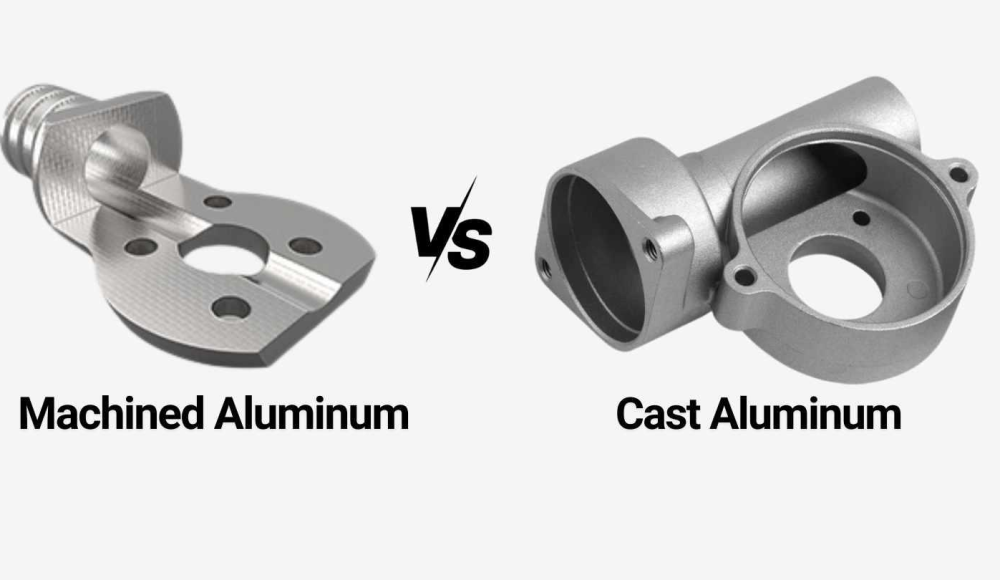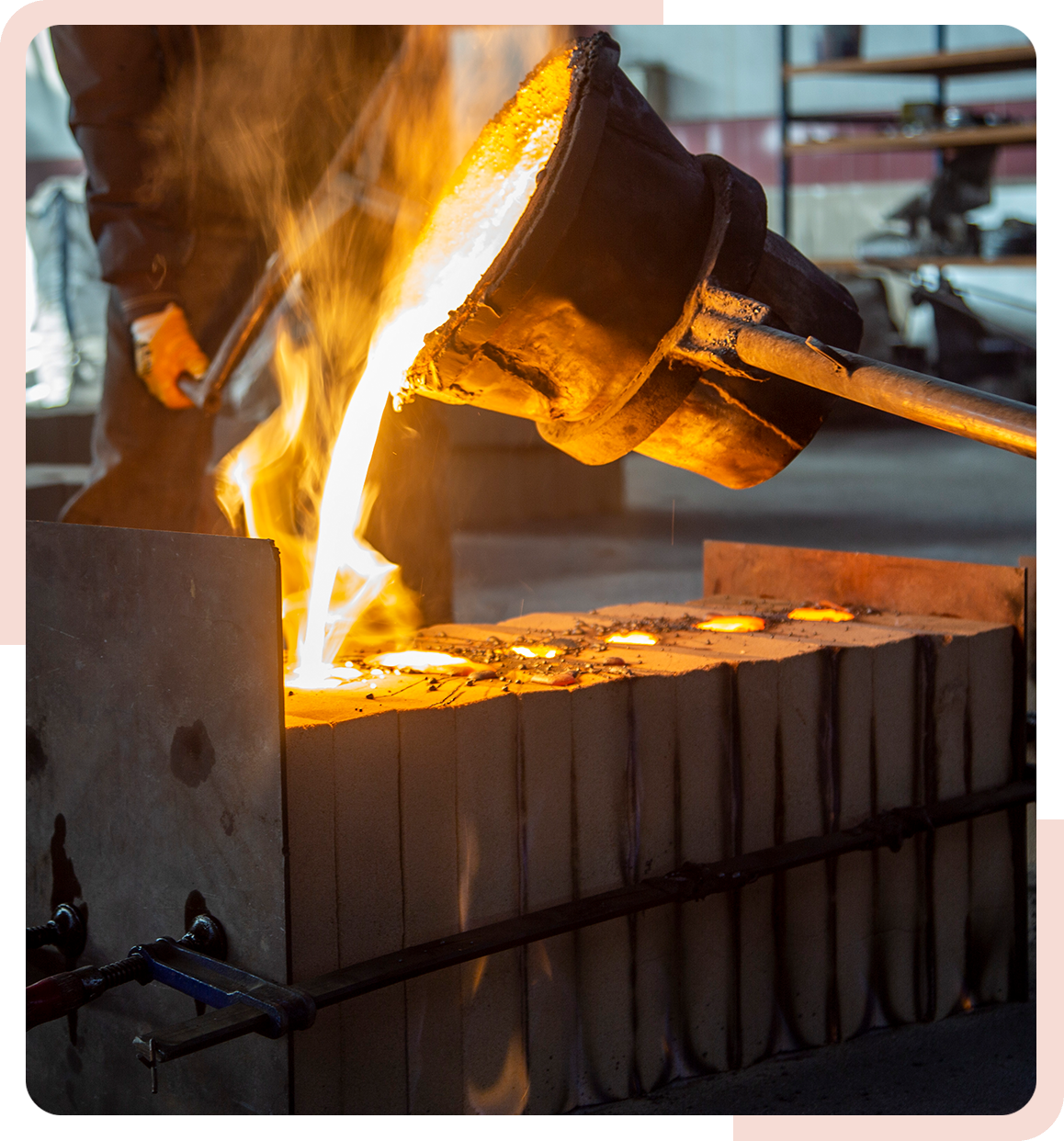Discovering the Innovative Procedures Behind Modern Light Weight Aluminum Shop Operations
Modern aluminum factory operations are undergoing considerable transformation. Automation and AI are improving manufacturing approaches, boosting both efficiency and precision. The assimilation of 3D printing is simplifying mold development, while sustainability methods are coming to be more necessary. Each of these improvements plays an essential duty in redefining the industry. The ramifications of these adjustments prolong past plain production efficiency. What obstacles and chances exist in advance for light weight aluminum factories in this advancing landscape?
The Function of Automation in Light Weight Aluminum Foundries

Automation contributes to improved safety and security requirements within the shop setting. By moving harmful jobs to devices, human workers can concentrate on managerial roles and high quality control, reducing the threat of mishaps. In addition, data analytics originated from automated processes give useful insights right into operational efficiency, resulting in better decision-making and continuous renovation. As the need for aluminum products grows, the adoption of automation innovations will likely expand, better transforming the landscape of light weight aluminum shop procedures.
Developments in Spreading Technologies
Recent improvements in casting technologies are changing light weight aluminum factory operations. Innovations such as 3D printing integration, advanced alloy formulas, and automated process optimization are boosting effectiveness and product top quality. These advancements are crucial in meeting the developing demands of the industry.
3D Printing Combination
Incorporating 3D printing modern technology right into light weight aluminum shop procedures has actually transformed conventional spreading methods, boosting both efficiency and precision. This innovative technique enables the quick manufacturing of intricate mold and mildews and cores, substantially lowering lead times and product waste. By using additive production, foundries can develop elaborate geometries that were impossible or formerly challenging to attain with traditional methods. The versatility of 3D printing also enables quick style modifications, cultivating a much more nimble production process. On top of that, this combination supports making use of light-weight frameworks, which is progressively crucial in sectors such as automotive and aerospace. As aluminum shops remain to adopt 3D printing, they place themselves at the center of technological development, driving improvements in product high quality and functional capabilities.
Advanced Alloy Formulations
The development of innovative alloy formulas has significantly enhanced casting innovations in light weight aluminum shop operations. These formulations incorporate various elements, such as magnesium, silicon, and copper, to boost mechanical buildings and thermal resistance. By customizing the make-up of aluminum alloys, manufacturers can attain certain performance attributes that fulfill the needs of varied applications, from auto elements to aerospace frameworks. The use of sophisticated alloys additionally adds to decreased weight and boosted strength, which are crucial consider modern-day design. Additionally, innovations in alloy growth allow far better fluidness throughout casting, resulting in improved surface area coatings and lowered defects. Generally, advanced alloy solutions stand for a substantial jump ahead, positioning aluminum factories to fulfill the progressing demands of numerous markets properly.
Automated Refine Optimization
Innovations in casting innovations have led the way for automated process enhancement in light weight aluminum shop procedures. By integrating sophisticated software application and real-time data analytics, shops can currently enhance manufacturing procedures and enhance high quality control. Automated systems keep track of variables such as temperature, cooling, and pressure prices, enabling immediate changes that lessen defects and waste. Furthermore, maker knowing formulas assess historical performance information to predict suitable settings, thus raising performance and minimizing cycle times. Robotics additionally play a significant function, managing repetitive tasks that enhance security and precision. In general, these advancements not just drive operational effectiveness but likewise enable factories to satisfy the growing demand for high-quality aluminum elements in numerous markets.
Smart Production and Industry 4.0 Integration
The combination of Smart Manufacturing and Market 4.0 within light weight aluminum shops is changing operational efficiency. By leveraging IoT modern technologies, automation, and robotics, shops can enhance production processes and decrease downtime. Additionally, information analytics supplies important insights that enhance decision-making and drive continuous improvement.
IoT in Foundry Procedures
As producers increasingly accept the Web of Things (IoT), shop procedures are experiencing a transformative shift in the direction of wise production and Industry 4.0 integration. Aluminum Foundry. IoT modern technologies allow real-time information collection and analysis, boosting decision-making procedures and functional efficiency. Sensing units and linked gadgets monitor equipment performance, product usage, and environmental conditions, enabling for aggressive maintenance and resource optimization. This connectivity fosters a much more nimble manufacturing setting, where changes can be made swiftly in response to market demands. Furthermore, IoT helps with improved traceability and high quality control, as data from the whole manufacturing cycle can be quickly accessed and evaluated. Generally, the integration of IoT in factory operations considerably improves performance and drives advancement in light weight aluminum production procedures
Automation and Robotics Integration
Automation and robotics assimilation is reinventing aluminum factory operations by improving effectiveness and accuracy. This transformative strategy improves procedures such as molding, pouring, and finishing, reducing human error and raising result consistency. By employing advanced robotic systems, foundries can attain greater production prices while preserving stringent top quality requirements. Automated systems likewise allow real-time monitoring and flexible control, permitting swift modifications to manufacturing parameters. In enhancement, the integration of robotics reduces labor costs and mitigates safety risks connected with hand-operated handling of molten metal. As foundries embrace smart production concepts inherent in Market 4.0, the synergy in between automation and robotics solidifies their one-upmanship, leading the way for lasting growth and technology in the aluminum casting field.
Data Analytics for Efficiency
Using data analytics substantially enhances efficiency within light weight aluminum shop operations, lining up with wise production and Sector 4.0 principles. By leveraging real-time information collection and analysis, shops can monitor production processes, forecast equipment failings, and optimize resource allocation. This data-driven strategy helps with insightful decision-making, enabling supervisors to recognize traffic jams and improve process. Additionally, predictive analytics encourages shops to prepare for market demands, therefore decreasing waste and ensuring timely product shipment. Combination of data analytics with IoT gadgets enhances operational visibility, promoting a proactive maintenance culture. Inevitably, executing these advanced logical strategies not just improves productivity yet likewise drives innovation, positioning aluminum factories to fulfill the developing demands of the market while keeping affordable sides in a rapidly transforming landscape.
Lasting Practices in Light Weight Aluminum Spreading
While the aluminum spreading sector has actually commonly encountered environmental obstacles, lots of factories are now embracing lasting practices to mitigate their influence (Aluminum Casting Company). A substantial focus has been on reusing aluminum scrap, which not just lowers waste but additionally saves power contrasted to key aluminum production. Cutting-edge melting modern technologies, such as induction heating systems, boost energy performance and lower greenhouse gas exhausts
Furthermore, foundries are executing closed-loop water supply to decrease water intake and minimize thermal air pollution. Using green binders in mold-making procedures is gaining grip, more decreasing unsafe exhausts.
Some facilities are investing in sustainable power resources to power procedures, straightening with global sustainability goals. By incorporating these methods, the aluminum casting industry is developing toward a much more eco accountable future, demonstrating that economic development can exist together with ecological stewardship - aluminum casting. These efforts mirror a commitment to sustainability and the significance of ecological liability in production
Quality Control Innovations
As the aluminum spreading industry breakthroughs in the direction of sustainability, the value of quality control advancements ends up being significantly apparent. Modern aluminum foundries are taking on advanced modern technologies to enhance their quality control processes. Strategies such as real-time tracking and information analytics permit manufacturers to detect variances and flaws early in the production cycle. Applying computerized assessment systems geared up with machine learning algorithms warranties that products fulfill rigorous top quality standards while decreasing human error.
Moreover, the assimilation of non-destructive screening approaches, such as radiographic and ultrasonic examinations, offers much deeper insights into the stability of spreadings without harming the product. These advancements not just improve product reliability however additionally lower waste, aligning with sustainability a fantastic read goals. In addition, the fostering of standard top quality structures helps enhance procedures throughout various shops, assuring uniformity in result. Jointly, these improvements are improving quality assurance, cultivating a culture of excellence within the light weight aluminum spreading sector.
Future Trends in Aluminum Factory Procedures
What advancements lie in advance for light weight aluminum foundry operations? The future of light weight aluminum foundries is positioned for improvement via innovations in automation, expert system, and sustainable methods. The assimilation of robotics and automated systems is anticipated to enhance effectiveness and precision in the spreading procedures, lowering human mistake and labor weblink costs. Furthermore, AI-driven analytics will allow real-time surveillance and predictive maintenance, enhancing functional performance and minimizing downtime.
Sustainability remains a focal point, with foundries increasingly taking on eco-friendly practices, such as making use of recycled aluminum and developing low-emission melting technologies. Developments in 3D printing are also anticipated to reinvent mold-making, enabling intricate geometries and minimized material waste. As the industry embraces digitalization, data-driven decision-making will certainly become pivotal, enabling shops to respond swiftly to market needs. Jointly, these patterns guarantee to redefine aluminum shop operations, making them much more efficient, lasting, and adaptable to future obstacles.

Regularly Asked Questions
What Safety Steps Are Carried Out in Aluminum Factory Procedures?
Light weight aluminum factory operations implement various safety and security measures, consisting of individual safety devices, air flow systems to take care of fumes, normal safety and security training, emergency response plans, and rigid surveillance of temperature and devices to prevent accidents and guarantee worker security.
Exactly How Do Factories Handle Labor Force Educating for New Technologies?

What Products Are Frequently Reused in Aluminum Foundries?
Aluminum foundries typically recycle scrap light weight aluminum, consisting of post-consumer products like drink containers, automobile parts, and building and construction products. This reusing process lowers waste and saves sources, adding to an extra sustainable aluminum manufacturing industry.
How Does Aluminum Casting Impact the Setting?
Light weight aluminum casting impacts the environment via energy-intensive processes, greenhouse gas exhausts, and possible regional air pollution. However, improvements in reusing and sustainable practices can reduce these results, advertising a more green strategy to light weight aluminum production.
What Are the Common Lead Times for Light Weight Aluminum Spreading Projects?
Regular preparation for aluminum casting projects vary significantly, typically ranging from two to 6 weeks. Factors influencing these timelines consist of intricacy, order dimension, and product availability, influencing general production timetables in shop operations.
Automation increasingly plays an important role in aluminum shops, boosting effectiveness and accuracy in the production process. Advancements in casting innovations have led the method for automatic procedure improvement in light weight aluminum shop operations. Using information analytics substantially boosts performance within light weight aluminum foundry operations, aligning with wise production and Sector 4.0 concepts. A considerable emphasis has actually been on recycling light weight aluminum scrap, which not just reduces waste yet additionally conserves power contrasted to primary light weight aluminum production. Light weight aluminum factories frequently reuse scrap you could try this out light weight aluminum, including post-consumer products like drink cans, automobile parts, and building and construction materials.